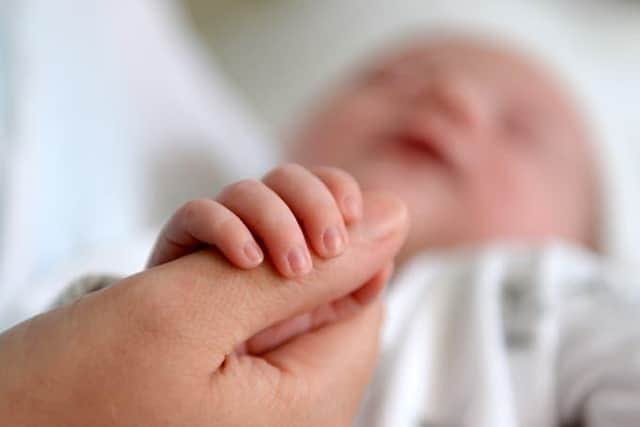More than 1,000 babies born in Mansfield in year Covid-19 hit
and live on Freeview channel 276
Office for National Statistics data shows there were 1,140 live births in Mansfield in 2020 – 42 fewer than the year before.
It meant the fertility rate was 1.73 births per woman, lower than the 1.75 rate in 2019.
Advertisement
Hide AdAdvertisement
Hide AdIn Ashfield, 1,238 babies were born, 123 fewer than 2019, while in Newark & Sherwood the number rose by 77, to 1,155.


Across all of Nottinghamshire, there were 7,711 live births in 2020 – 192 fewer than the year before.
It meant the county fertility rate was 1.56 births per woman, lower than 1.62 in 2019.
The total fertility rate is the average number of children a mother would have while she is of childbearing age, if she experienced the typical fertility rate every year.
Advertisement
Hide AdAdvertisement
Hide AdAccording to the ONS, the fertility rate has been decreasing nationally for a number of reasons, including improved access to contraception, women delaying motherhood and having fewer babies.
Restrictions
Figures show that of the babies born to mothers living in Mansfield in 2020, 271, or 23.8 per cent, had at least one non-UK parent, with 203, or 17.8 per cent, having both parents born outside the UK.
In Ashfield, the figures were 171, or 13.8 per cent, and 107, or 8.6 per cent, respectively.
Anxiety for new parents was exacerbated by restrictions imposed during the coronavirus pandemic, with many feeling isolated and facing reduced access to professional care.
Advertisement
Hide AdAdvertisement
Hide AdThe Royal College of Midwives said maternity staff made ‘enormous efforts’ to keep as many services running as possible, but added they were already under pressure before the pandemic.
Restrictions included limitations on visiting and the amount of time partners were allowed with new mums at birth, limited choice on where to give birth and fewer in-person appointments.
Dr Mary Ross-Davie, college executive director for professional midwifery, said restrictions were imposed ‘with a heavy heart’, but many parents were supportive.
The NHS said the Government gave £95 million of extra funding to maternity services to meet challenges posed by the pandemic.
Advertisement
Hide AdAdvertisement
Hide AdAn NHS spokesman said: “NHS staff worked tirelessly to ensure thousands of babies were born safely over the past year and mums have continued to receive personal, compassionate maternity care in extraordinary circumstances.”
